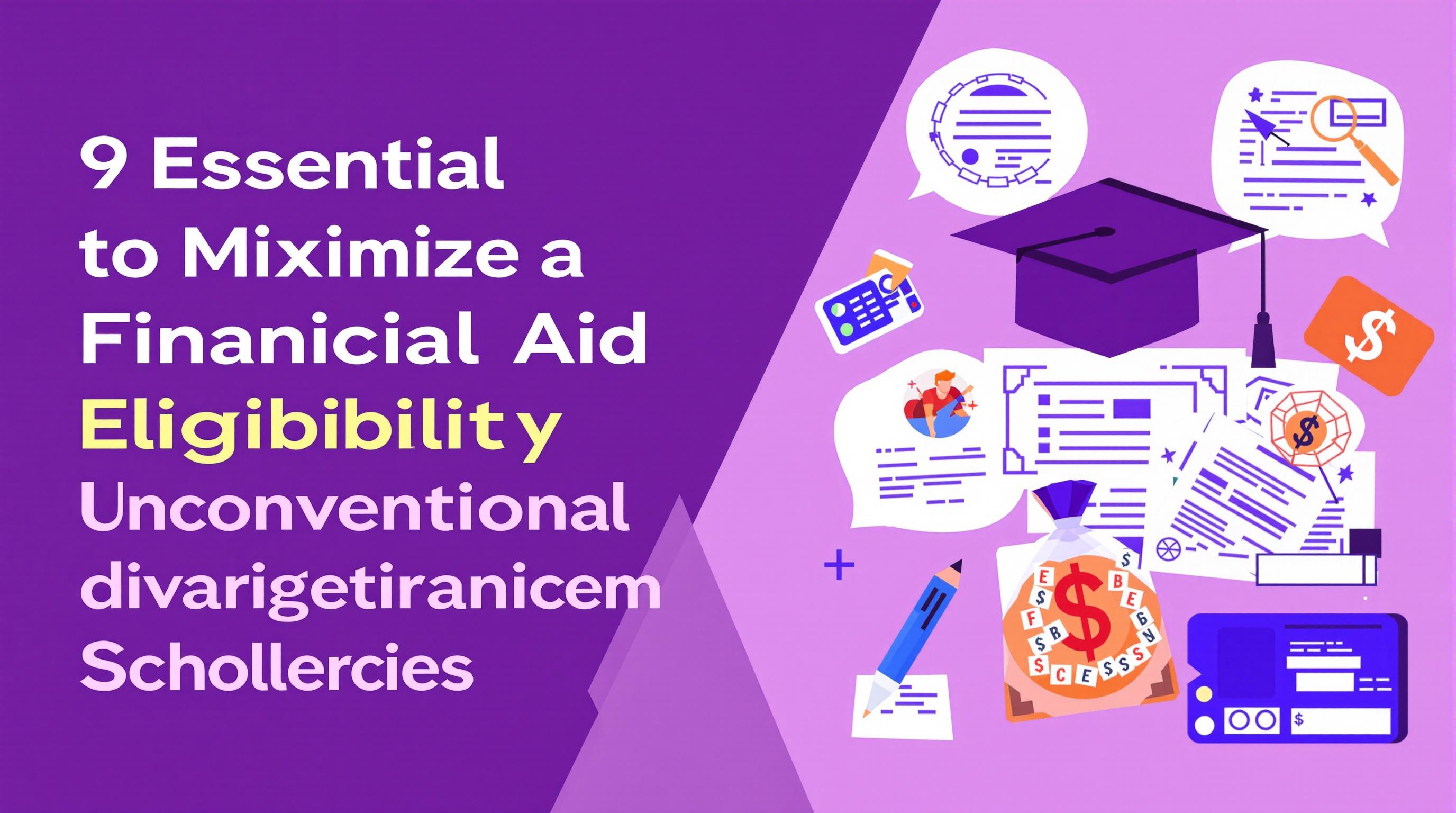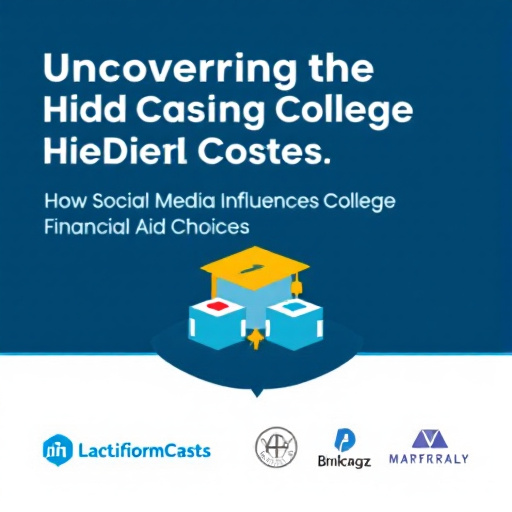Featured Articles
- 9 Essential Strategies to Maximize College Financial Aid Eligibility Through Unconventional Scholarship Sources
- From Grants to Gigs: How the Gig Economy is Shaping Modern College Financial Aid Options
- Redefining Financial Aid: How Social Media Influence Shapes College Funding Choices for Gen Z Students
- The Hidden Costs of College: How Unseen Expenses Derail Financial Aid Plans
- Top 6 Innovative College Savings Apps Released Since 2019 That Actually Boost Your Financial Aid Chances
The Hidden Costs of College: How Unseen Expenses Derail Financial Aid Plans
The Hidden Costs of College: How Unseen Expenses Derail Financial Aid Plans
College can be an incredible journey toward growth, independence, and future success, yet hidden costs often undermine those dreams and wreak havoc on financial aid plans. Understanding these hidden expenses enables students and families to navigate the financial maze that higher education often entails.
The Illusion of Affordability
When families budget for college, they typically focus on tuition and room and board, which is understandable since these are the headline figures prominently featured on colleges' websites. However, a study by the College Board revealed that, on average, students incur about $6,000 in additional costs each year, categorized as “indirect expenses” (College Board, 2021). These include textbooks, supplies, transportation, personal expenses, and other fees that can add up quickly but are often overlooked during the planning phase.
Case Study: Jenna's Journey
Let's take Jenna, an enthusiastic high school senior. After receiving a generous scholarship, she thought she would only have to come up with a small amount to pay for tuition. However, Jenna quickly learned that her scholarship didn’t cover the full cost of books, which amounted to around $1,200 a year, and her transportation costs quickly added up to nearly $800 as she commuted every day from home.
The Transportation Trap
Speaking of transportation, it’s worth noting just how sneaky car-related expenses can be. As public transportation may not always be viable, many students rely on their vehicles to get to class or work. Fuel costs, maintenance, insurance, parking permits, and unexpected repairs can quietly obliterate budgets, leaving students scrambling when financial aid falls short. A survey by Student Loan Hero found that 51% of students felt unprepared for related travel costs when heading off to college (Student Loan Hero, 2022).
The Price of Isolation
Now imagine living on campus. The dorms may seem like a haven, but living away from home introduces its own hidden costs: laundry, groceries, and amenities, to name a few. A casual conversation with fellow students may reveal that many underestimate their monthly grocery bill, leading to a frantic struggle for funds when the end of the month approaches. A staggering 63% of students report feeling food insecure during their college career (Hope Center for College, Community, and Justice, 2020). It’s not just about choosing between ramen and pasta but about making precise budgeting decisions that significantly impact well-being.
A Hidden Dragon: Fees and Supplies
In addition to textbooks, students face a slew of fees. Universities often charge "student activity fees," "technology fees," and "health service fees." For example, my friend Tom, who just graduated last year, was blindsided by a technology fee of $500 that wasn't mentioned during orientation. It was a lot of money coming out of his tight budget, especially when he believed he’d already covered all necessary expenses.
The Cost of Connections
Don't forget about the cost of social activities. College is not just about hitting the books, but engaging with peers. College events, club memberships, Greek life, and even the occasional trip to the movies can chip away at that carefully crafted budget. Socializing isn't just encouraged; it's essential for personal development and networking. A recent analysis found that students who engage in campus activities often perform better academically, creating a paradox where benefits lead to additional costs (Association of American Colleges & Universities, 2021).
A Shift in Perspective
Okay, let’s take a step back. Maybe some of these experiences are invaluable, but it’s crucial to address the financial impact in a realistic manner. It is nearly impossible to predict everything that will require your funds. However, conducting thorough research and using student price comparison websites can help demystify costs. Alexa, a college sophomore, suggests using online marketplaces to find used textbooks and second-hand dorm supplies. “Every penny counts,” she says. Wise words indeed.
Planning for the Unexpected
Despite all planning, unexpected expenses can—and often will—arise. Medical emergencies, sudden travel needs, or simply needing to buy a new laptop can wreak havoc on a financial aid plan. Just imagine Sarah's situation; her laptop decided to take a permanent vacation during finals week, and she had to shell out on a replacement. Financial aid policies can be rigid, and often students encounter the cold, hard reality that their aid packages will not cover these costs. Data from the National Center for Education Statistics shows that approximately 43% of students end up relying on parental support or loans to cope with these unforeseen expenses (NCES, 2021).
Finding Solutions at the Campus Level
Luckily, many colleges have started stepping up. Some institutions have emergency funds available for students to access in times of financial need, which can be a lifesaver. School food pantries have also popped up, addressing food insecurity on campus. Students can often find support and resources that can help mitigate these hidden costs; the key is just to look! In fact, 32% of students reported using some sort of institution-provided financial support during their studies (National Student Financial Wellness Study, 2021).
Conclusion: Knowledge is Power
In the end, understanding and budgeting for these hidden costs is critical for a smooth college experience. Although the idea of financial aids can seem like an easy ticket, it frequently overlooks many of the nuances that college life entails. By anticipating additional expenses and researching available resources, students will not only survive but thrive through their college years. You’ll go into that next semester more prepared and more knowledgeable, proving that, in the world of college financing, knowledge is indeed power.
So here's the bottom line: Arm yourself with information, outline your costs, and be realistic in your planning. College is a fantastic journey that should be enjoyed—not a financial black hole. Remember, it’s not just about the diploma at the end — it’s about the whole experience, hidden costs and all.




